New Hampshire is a great place to hike with ample access to woods, water, and windswept summits. Below, we spotlight some of the best, most beautiful, most famous, and most accessible hikes in New Hampshire for visitors and Bucket List-oriented locals, alike. Each is special for a different reason, as each hike detailed below reflects something uniquely wonderful about the great outdoors in one of New England’s most recreation-oriented states.
Most of New Hampshire’s best hikes, moreover, center around the White Mountains– which offer ample opportunities for snowmobiling, cross-country skiing, forest canopy exploration, kayaking, and other outdoor recreation, in addition to hiking.
Be sure to check the local State Park websites (linked below) before making any plans to visit New Hampshire’s natural areas. Weather, holidays, and other unexpected limitations can lead to occasional closures, so be sure to check with NPS websites to stay up-to-date.
Herewith, in no particular order, we highlight some of the best hikes in New Hampshire for summer, fall, spring, and winter hiking alike.
Bookmark this list for easy reference later!
***
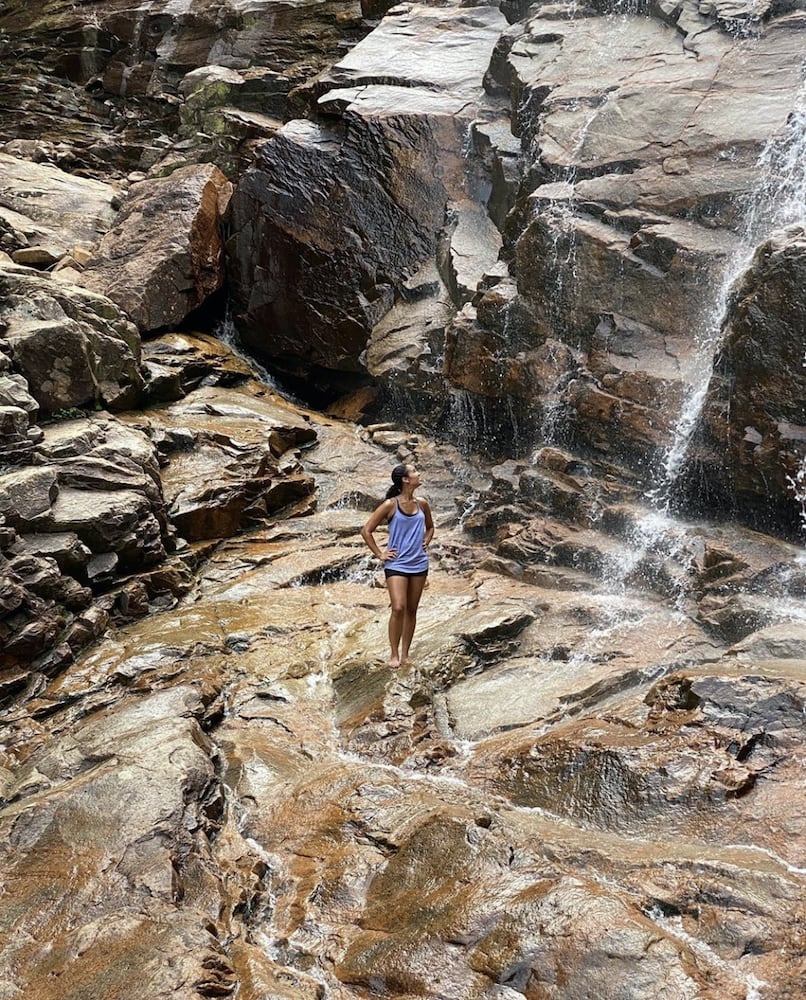
Arethusa Falls Trail Hike
Arethusa Falls Trail Hike in Crawford Notch, New Hampshire rewards hikers with amazing access to cooling, picturesque waterfalls. With a mint location in New Hampshire’s White Mountains and easy access off of Route 302, it’s a great family-friendly hike with one of the most scenic waterfalls in New England.
This 2.8-mile out-and-back uphill hike is generally considered easy for people with experience hiking. However, it can get muddy after rain, and there is some scramble that might require care and attention for kids, older folks, and dogs (who are only allowed on a leash).
Parts of this hike are steep, which makes it a good aerobic hike, as well. Ideally, go around 3 PM for less harsh sun and fewer people.
If you have time or interest, head down to Bemis Brook and explore Bemis Falls during your hike. The trails are well-maintained, but you should also be able to follow the sound of running water.
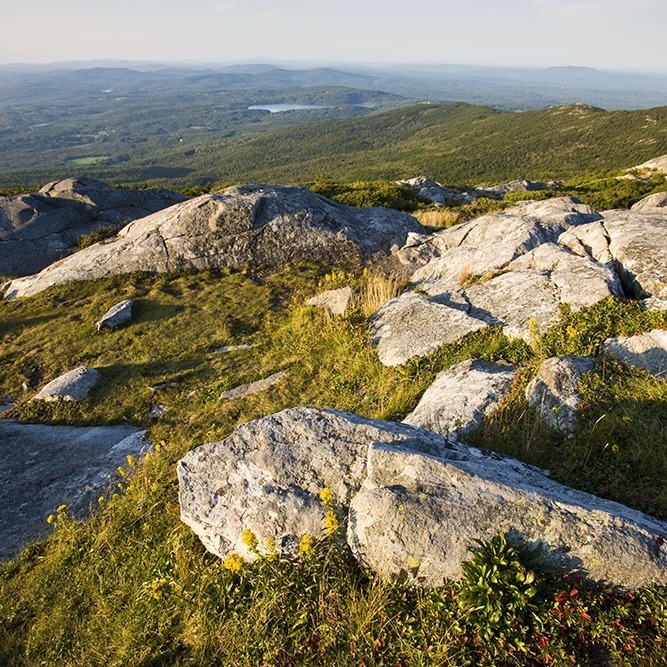
Mount Monadnock State Park
This winding hike up Mount Monadnock in Mount Monadnock State Park rises over 3,165 feet to the top. People claim that this mountain is “the second most climbed mountain in the world”, after Mount Fuji (in Japan), but I have yet to verify that. Nevertheless, it’s surrounded by thousands of acres of protected highlands, and it’s a designated National Natural Landmark.
Remember to reserve your Parking Day Pass in advance no later than 9 AM on the day of your intended arrival, or you will likely be turned away.
This hike is intermediate-to-advanced as far as the strenuousness of New England hiking goes. Be sure to bring water and sun protection as much of the hike is open-air or exposed to the sun. If you’re going after rain, be sure to bring mosquito repellent, as well.
In the winter, beautiful snow gathers in the cracked rocks to make a landscape that looks like Mars. In the Fall, (the second most popular hiking season for this region), expect crowds as people drive from all over New England to see the red, orange, and golden Autumn leaves from the summit.
Related: A Weekender’s Guide to Keene, New Hampshire.
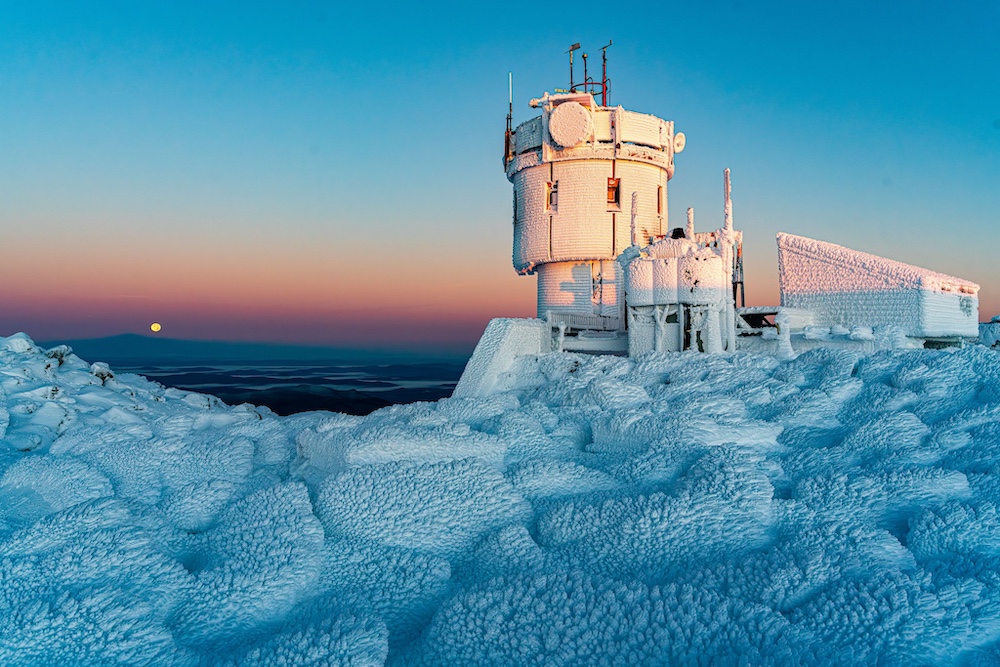
Mount Washington
Mount Washington is easily New Hampshire’s most famous and formidable summit. Referred to as Agiocochook by Native Americas, Mount Washington is the highest peak in the Northeastern United States, standing at roughly 6,288 feet.
There are, however, a number of hikes that are more accessible to regular hikers, specifically, the Jewell Trail, which begins in the parking lot of the Cog Railway station on Base Road. It’s 5.2 miles one-way, and gains 4,000 feet of elevation with parts above the tree line. It’s a relatively moderate and vigorous hike, with charming views throughout the upper reaches of the ascent.
Because the mountain is notorious for its erratic weather, which can vary wildly from bottom to top, hikers should travel in pairs and check the weather before embarking on any hikes here. This is especially true if you’re intending to hike in the late fall or winter, which is an undertaking advised for experienced hikers, only. (Check out those insane snow drift views from the observatory in winter, above. The weather at the summit is no joke!)
The infamous Huntington Ravine Trail, specifically, is storm-prone, difficult, and the weather can change quickly. Be sure you know what you’re doing before you venture out here, even if you’re hiking with a buddy. (There are parts where there’s no cell service, but the views are fantastic if that doesn’t freak you out.)
-
Event Spotlight: The Mt. Washington Road Race
Mount Washington is also home to the famously tough Mt. Washington Road Race, which boasts a steadily punishing average grade of 12% (the entire race is uphill after the first hundred yards, leading event coordinators to famously joke that “there’s only one hill!”).
Over the course of 7.6 miles, the course rises over 4,650 feet as it traces the car-accessible road up the side of the mountain. For dedicated New England runners, it’s a Bucket List road race.
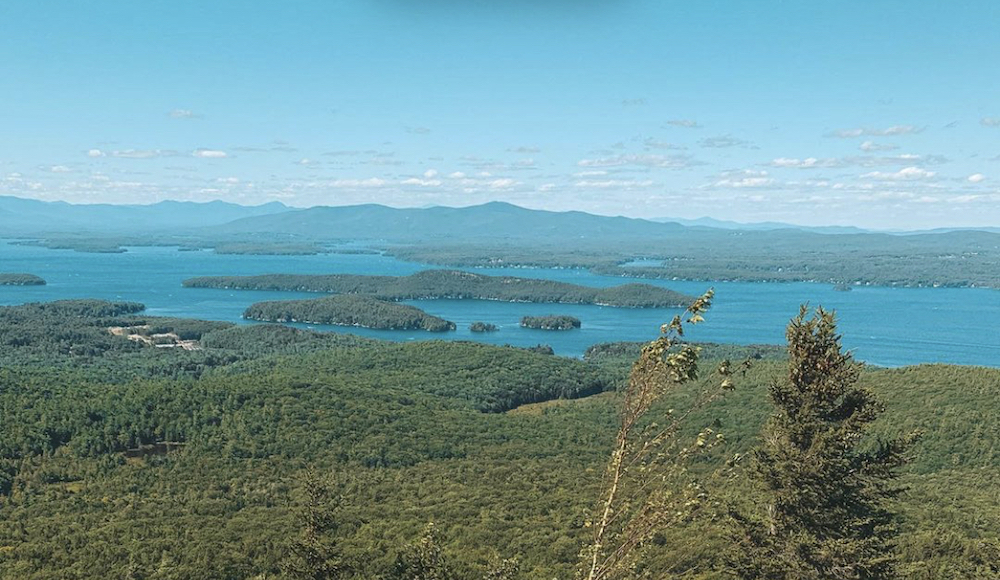
Mount Major and Brook Loop Trail
Not too far from Lake Winnipesaukee, the popular 3.7-mile hiking loop up and around Mount Major has gorgeous views of Alton Bay and the surrounding New Hampshire landscape.
This trail is heavily trafficked and family-friendly, with awesome water views of Alton Bay as it glows turquoise and resplendent in the summer.
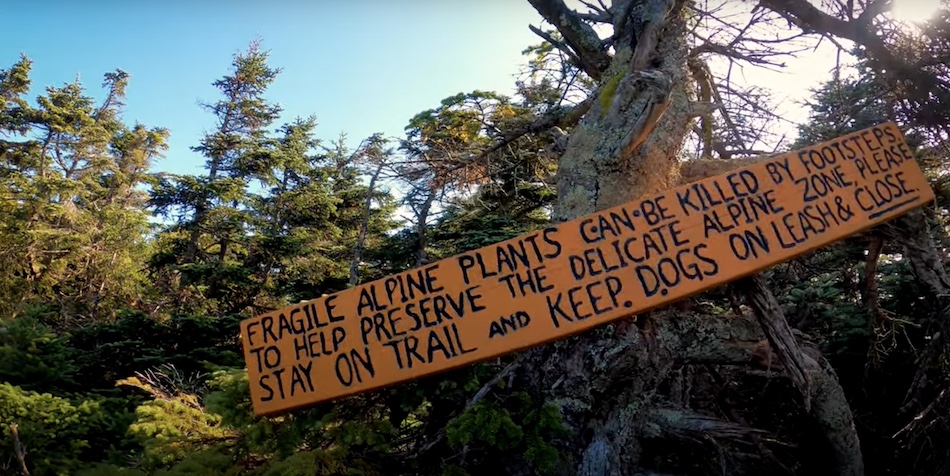
Mount Moosilauke (South Peak Loop)
The popular 7.2 mile loop hike up Mount Moosilauke rises gradually, peaking at 4802 feet. This longer hike in the White Mountains of West-Central New Hampshire is good for people looking for a more accessible “long hike” because the gain isn’t ever very abrupt.
At times, it’s even leisurely! While the loop sees a lot of foot traffic, the distance makes it so that you can feel like you have stretches of the hike to yourself, even between June and October (the peak hiking season in New Hampshire).
On a clear day, this alpine summit offers stunning views over the White Mountains and across New Hampshire. Bring sunscreen and water if hiking in the summer; bring a second layer if hiking off-season.
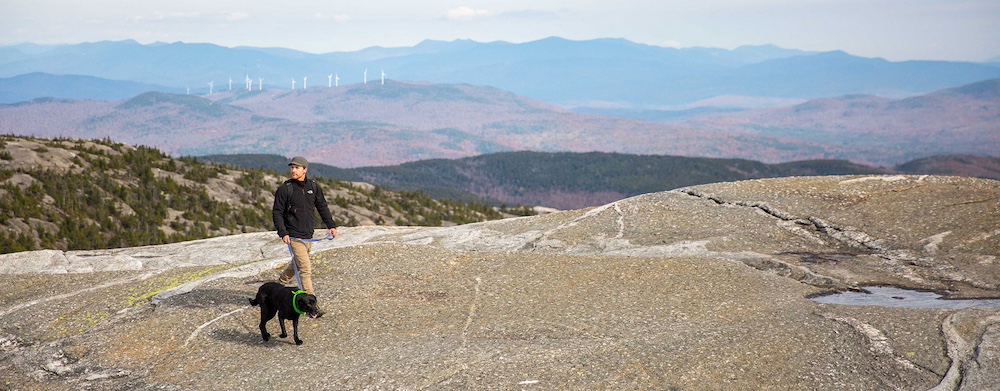
Cardigan Mountain State Park
Cardigan Mountain State Park in Orange, New Hampshire has lovely, flat-topped vistas at the top. Here, expect nice, 360-degree view panoramas with lots of flat surfaces for picnicking, pictures, and no fear of falling off the edge.
On a clear day, the visibility at the top can extend for over 100 miles!
Trails begin on the Western slope of Mount Cardigan, which extends throughout and above the park’s 5,655 acres. Most of the hike takes you through a classic Northern Hardwood forest, featuring a mix of sugar maple, American beech, and yellow birch trees.
And yes, dogs on a leash are welcome.
Liberty Trail + Brook Trail on Mount Chocorua
Mount Chocorua offers some of the more advanced hikes in the White Mountains. The mountain’s heavily trafficked 9.8-mile loop trails rise gradually to 3,490 feet, with some crazy drop-offs on the peak. In the summer, the lush green expanses below look almost tropical, with lovely colorful tufts of alpine flowers and lush tree cover throughout.
A popular hiking combo is to combine the Liberty Trail with the Brook Trail for an excellent day hike. This will take you to the iconic Mt. Chocorua Summit.
More information on alternate routes and access points can be found here.
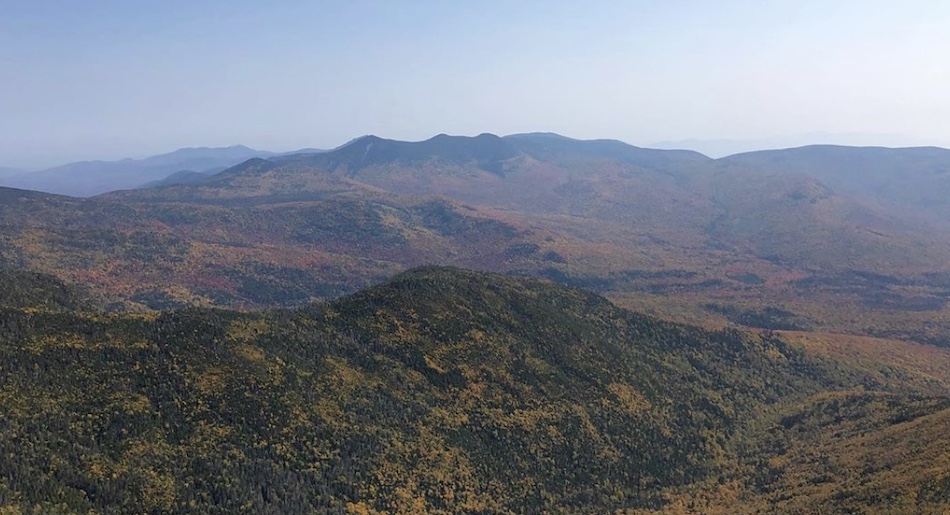
*Honorable Mention / Only For Experienced Hikers*
A few other advanced hikes that may appeal to experienced adventurers.
Mount Osceola
This 4,000-foot climb in the White Mountains can be slippery on the way down– but only if you’re not careful. It’s a dog-friendly hike during the spring, summer, and fall, and a somewhat hardcore hike in the winter. You decide. (That’s a picture of the views from the top during Fall, above.)
The Great Gulf Trail
If you’re looking for a long hike– say, a 13-miler with 5,000 feet in elevation gain– then Great Gulf Trail might be the hike for you. It’s a moderately trafficked out-and-back that makes a great day hike. Get more info and read other people’s experience hiking the trail here.
Cascade Mountain and Dream Lake
Cascade Mountain and Dream Lake is a 15.8-mile out-n-back trail in a lovely forested section of the Appalachian Trail.
This difficult hike begins in Gorham, New Hampshire, and is popular among backpackers, especially those hiking the Appalachian Trail. It rises over 5,500 feet in elevation over the first ~7-ish miles.
Dogs can roam on the trail but have to stay on a leash at all times. Also, given the risk of forest fires, please do not bring any flammables or leave any trash. (You know, normal hiking etiquette.)
***
Related: A Weekender’s Guide to Keene, New Hampshire.
Looking for more New England summer getaways? Read our Gorgeous Guide to Kennebunkport, Maine, explore Rhode Island’s most beautiful sunflower fields, or go Tulip Picking in the forests of Exeter.
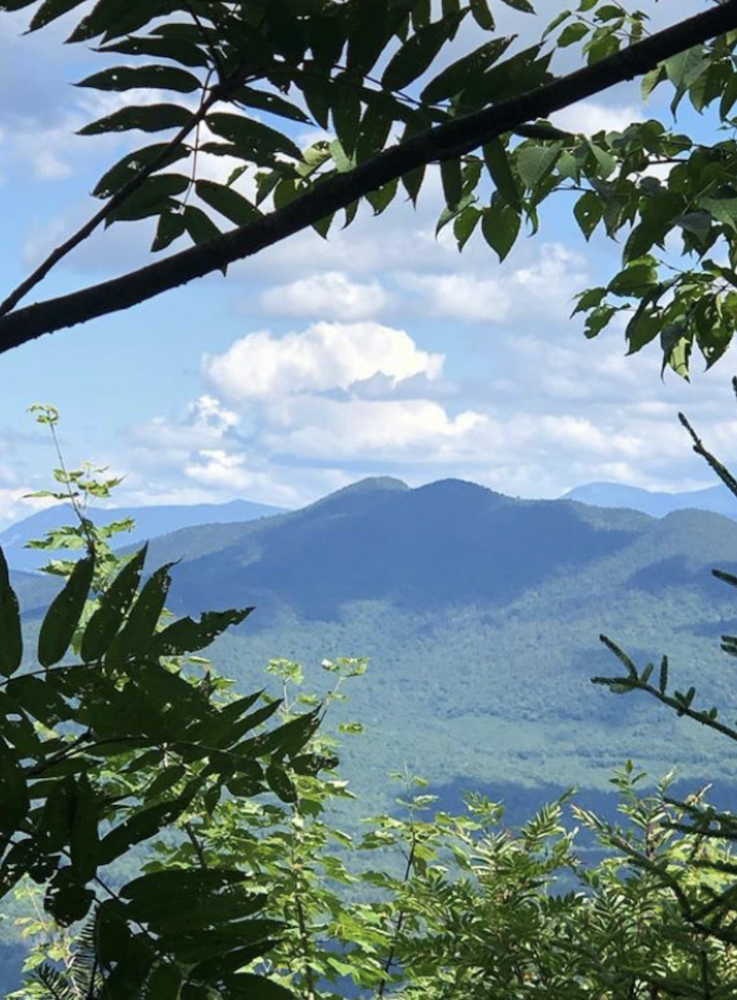
Leave a Reply